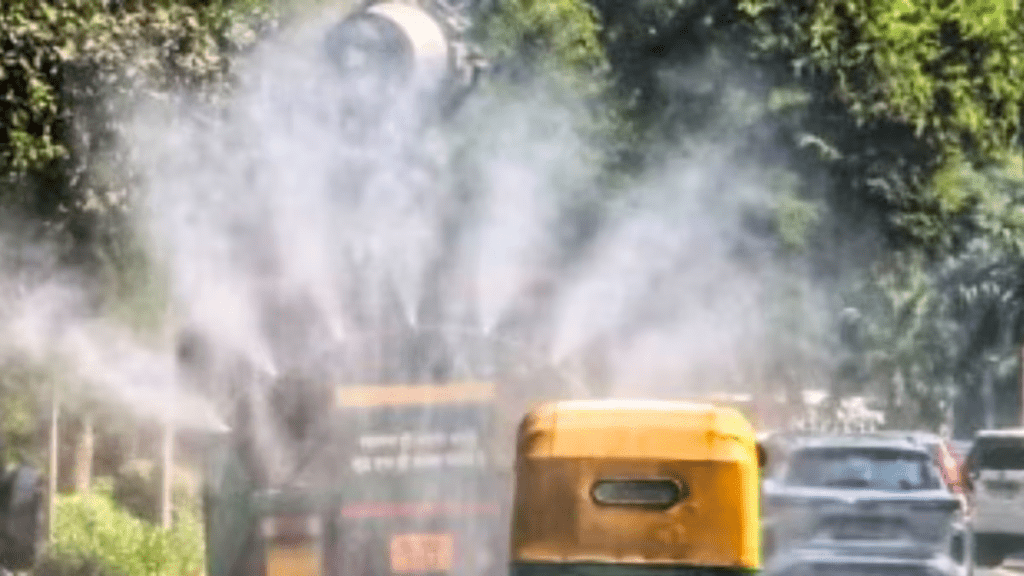A thick fog enveloped Delhi on Tuesday morning. with the AQI climbing to 494, the highest this season, leading schools and Delhi University colleges to switch to online mode.
AQI Remains in ‘Severe Plus’ Category, Reaching Alarmingly High Levels of 500
The AQI stayed in the ‘Severe Plus’ category. With most air monitoring systems in Delhi and nearby areas hitting “alarmingly high” levels, peaking at 500.
According to the Central Pollution Control Board (CPCB). Delhi’s Anand Vihar, Ashok Vihar, Bawana, Jahangirpuri, Major Dhyan Chand Stadium. And several other locations recorded an AQI of 500 at 5 a.m. on Tuesday.
An AQI of 0-50 is classified as ‘good,’ 51-100 as ‘satisfactory,’ 101-200 as ‘moderate,’ 201-300 as ‘poor,’ 301-400 as ‘very poor,’ 401-500 as ‘severe,’. And anything above 500 falls under the ‘severe plus’ category.
With air quality worsening, schools in the National Capital Region have either been close or move to online classes.
In Haryana’s Gurugram. All classes up to Grade 12 have been suspend from November 19 to November 23, or until further notice. Meanwhile, Ghaziabad, with an AQI of 450, has directed schools to switch to online learning. Similarly, the Gautam Buddh Nagar district administration has mandated the suspension of all in-person classes.
Dense fog in the national capital reduced visibility, leading to delays and cancellations of trains and flights. According to ANI, at least 22 trains were delaye, and nine were cancelle on Tuesday morning.
IndiGo Airlines released a travel advisory stating. “Foggy conditions in Delhi, Amritsar, and Chandigarh are impacting travel, causing slow traffic and potential flight disruptions. Travelers are advise to plan ahe and check flight status for a hassle-free journey.”
On Monday, the Union health secretary issued an updated advisory to states and union territories. Urging them to enhance health systems and increase awareness among vulnerable groups and high-risk occupations regarding air pollution.
The advisory recommends creating comprehensive action plans at the district and city levels to tackle the health effects of climate change, with a focus on strategies to reduce air pollution.
The latest readings coincide with the implementation of strict anti-pollution measures in the national capital under Stage 4 of the Graded Response Action Plan (GRAP).
These measures mandate that trucks can only enter Delhi if they are transporting essential goods or using clean fuels, such as LNG, CNG, BS-VI diesel, or electricity.
All construction activities, including those for highways, roads, flyovers, power lines, pipelines, and other public projects, have been halte.
With strict regulations in effect, the government in the national capital may also enforce odd-even vehicle rules, a traffic system allowing vehicles on the roads based on the last digit of their registration number.











More Stories
Bengaluru Couple Bows to Auto Driver After Viral Incident
Ishaan Khatter makes fans scream as he pulls off butter smooth dance moves at Miss World 2025: Watch
बाराबंकी: अर्टिगा-ट्रक भिड़ंत, 4 की मौत, 3 घायल